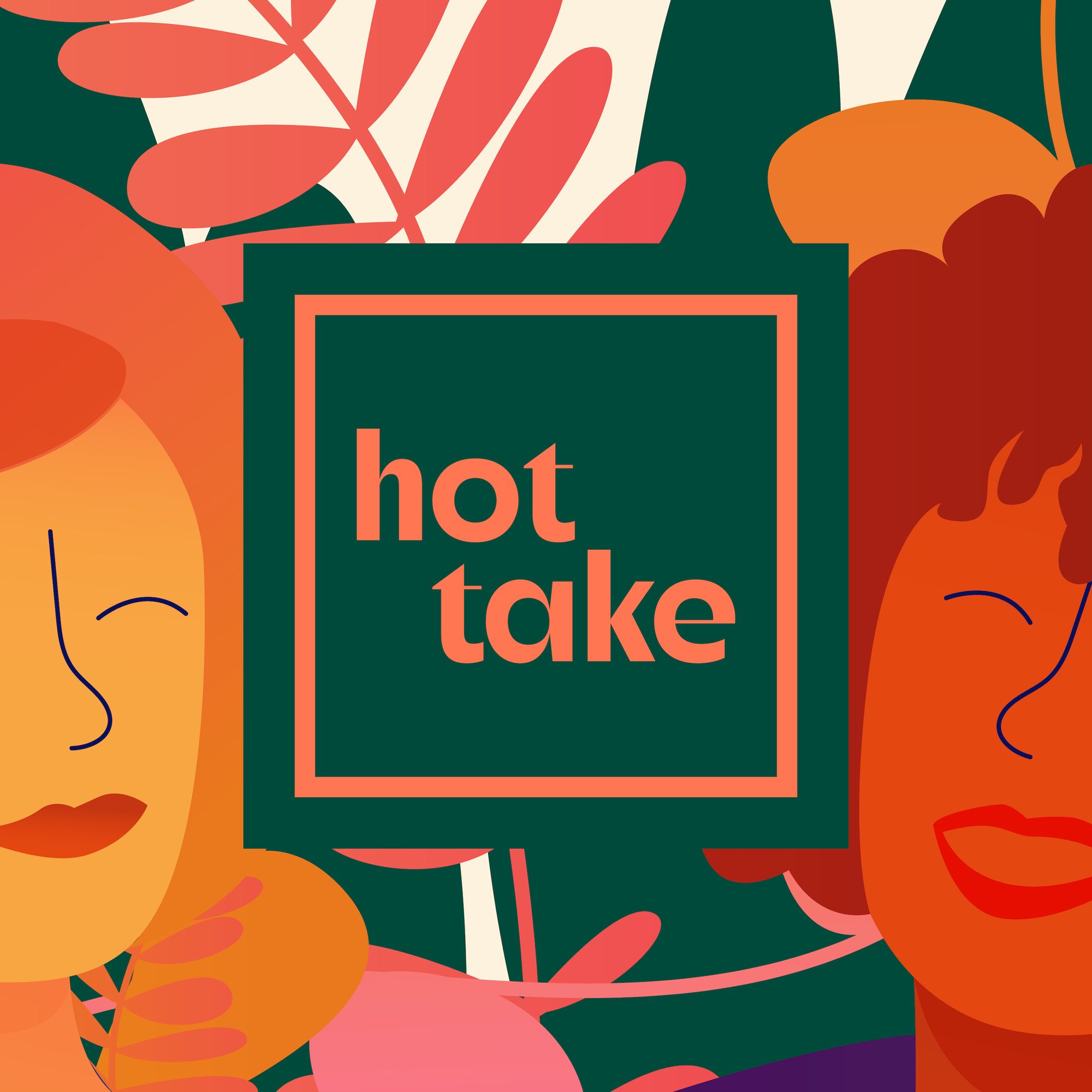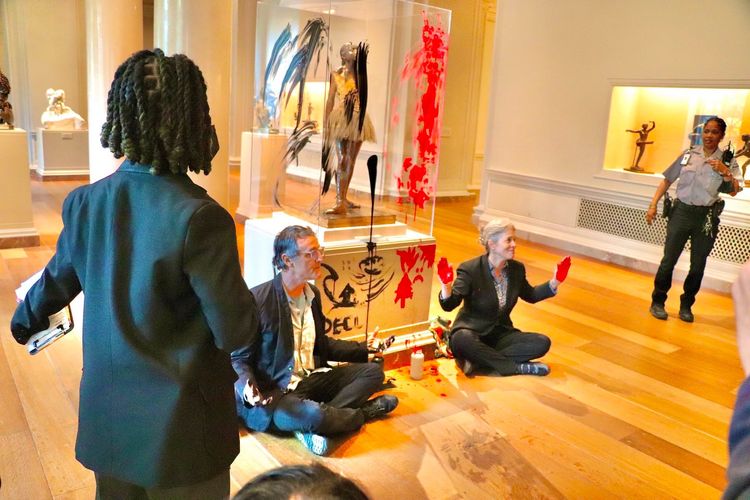The Market Won’t Save Us, Unless We Radically Change It
By Amy Westervelt
This week I moderated an event about climate disinformation and all the many ways it makes its way out into the world. The idea was to widen the lens of accountability to include not just the big oil companies but also the PR and ad firms, think tanks, lobbyists and consultants that help them lie to the public and manipulate the government. All day all I could think about was why I started calling disinformation “information pollution” instead last year. Pollution seemed like a better word to me because lies and manipulation don't stay contained to the issue or industry or audience they were targeted to, they move everywhere, crossing every boundary. When companies cast doubt on science of all kinds for decades, for example, the distrust of scientific expertise that they cultivated didn’t stay contained to the chemical industry or the tobacco industry or the fossil fuel industry, it warped society’s relationship with science writ large. So when a public health crisis like Covid-19 hit, a significant portion of the U.S. public in particular was primed to ignore scientists. In her new book with Erik Conway, The Big Myth, Naomi Oreskes tackles another prime example: the creation and spread of the idea that so-called “free market capitalism” is what makes Americans free, that the government is bad and companies are our benevolent patrons.
Oreskes told me when she and Conway finished their bestseller Merchants of Doubt, there was one big question lingering: Where did this ideology come from?
To answer that question, Oreskes and Conway combed through dozens of archives, journals, and books to find the corporations and industry trade groups at the root of this phenomenon: oil companies, of course, but also every other extractive industry, along with the National Association of Manufacturers (NAM) and the U.S. Chamber of Commerce. Which is why the American understanding of “the market” and what “free market” means evolved differently than in other countries. Basically, after the Depression, with the New Deal fundamentally improving Americans’ lives, corporate America needed a way to remind Americans that not only were they still relevant, they were fundamental to freedom and success and the only thing standing between Americans and Stalinism.
“In the early twentieth century, a group of self-styled “neo-liberals” shifted economic and political thinking radically,” Conway and Oreskes write in The Big Myth. “They argued that any government action in the marketplace, even well intentioned, compromised the freedom of individuals to do as they pleased—and therefore put us on the road to totalitarianism. Political and economic freedom were ‘indivisible,’ they insisted: any compromise to the latter was a threat to the former”
That meant really any compromise Oreskes told me at the climate disinfo event. “It might seem hard to believe that any group would come out campaigning in favor of allowing five-year-olds to work,” she said. “But in the early 20th century, NAM did exactly that.”
But of course, she added, “Climate change is an epic market failure. So how can we possibly say the market will fix it, if we don’t address the neoliberal understanding of the market?”
Oreskes talks about Ronald Reagan and his famous line about the “magic of marketplace” to underscore the magical thinking of neoliberal capitalism, but that magic is also a tiny silver lining. Because markets are, in fact, made up—s are economic systems and the values we decide to make central to them. The economist Christian Felber talks a lot about the idea that in the same way that you can have a socialist country where inequality takes root (hi, Sweden), you could theoretically have a capitalist economy that decides to value things like health and safety and equality at its center, thus driving all sorts of different policies that actually protect the common good.
“The cultural value of the common good exists in all cultures,” he told John Biewen and I on an episode of Scene on Radio. “Maybe it doesn't have the same name. It's called Buen Vivir in Latin America, or Ubuntu in South Africa, or National Happiness in Bhutan. But there is no culture on this planet which does not know the lead value of the common good.”
Felber points out that the way capitalism has evolved in the West is actually deeply contradictory to Western values, and he goes back to Aristotle to make that point. Aristotle argued that any exchange in an economic system should be about the actual value of things — not more (so no profiting because something is suddenly scarce, for example) — and always keep in mind the well-being of everyone involved and of the wider community. Aristotle coined the term “chrematistics” to describe wealth accumulation, and he called that an unnatural, dehumanizing focus for a human being. Christian Felber argues that what we have in most of the 21st century world is not an economic system, in the original sense of the word, but a chrematistic system.
Bringing the global economy back in line with the common good, then, is just a matter of rethinking the values at the center of our economic systems and matching economic policy to those values. Felber talks about a “common good balance sheet” in his book Change Everything, but other economists have suggested slightly different approaches (Kate Raworth’s Doughnut Economics, for example). The point is this: markets are made up by people and that means we can change them.
When it comes to climate, that market shift needs to happen before any of the proposed market solutions will work. As is, Oreskes says “the market cannot solve this problem.” In other words, financial incentives for clean energy will only work in a system that rewards the reduction of emissions and pollution. In our current system, such incentives are more likely to lead to a mining boom and an explosion in smoke-and-mirrors carbon capture projects that only deliver more carbon dioxide emissions, not to mention immediate harm to the water and air of the communities they’re placed in.
We talk a lot about the need for structural change, addressing the systems and decision-making frameworks that led to the climate crisis in the first place, and the reaction to that is often to write us off as radical leftists who hate capitalism, or idealists who want the whole world to return to some sort of agrarian lifestyle. Libertarians like to make the argument (as yet another one did in The Atlantic this week) that if climate activists really believed we were in a crisis we would get on board with nuclear, GMOs, industrial ag, gas, and unchecked mining expansion in the name of saving the human race.
My response is simple: I believe we’re in a state of absolute emergency, which means nothing short of a rapid overhaul will actually work. That doesn’t mean I’m opposed to clean energy where we can make it work, or where it can buy us time for larger-scale change. But fundamentally, the days for tweaks within the existing system have passed. Our lives are already fundamentally changed by the climate crisis, and the necessary, appropriately urgent response to a crisis that is ending and uprooting millions of lives every day is not plugging different shit into the grid, it’s a total system reboot.





Only paid subscribers can comment.
Please subscribe or sign in to join the conversation.